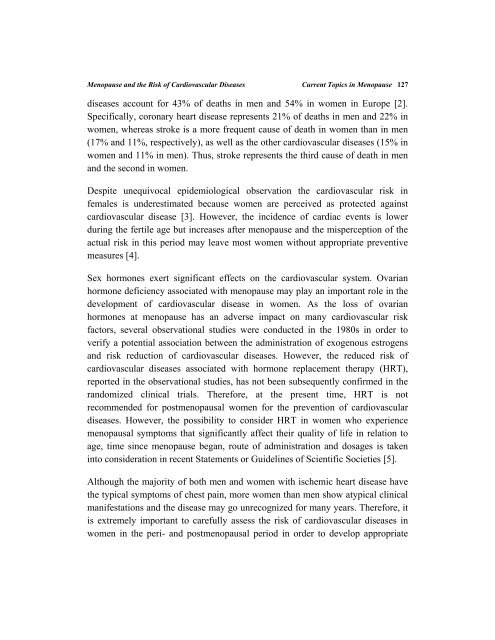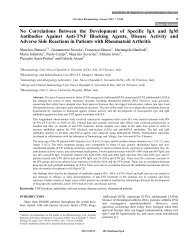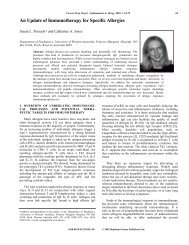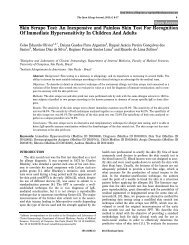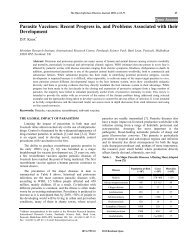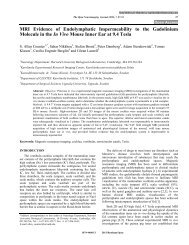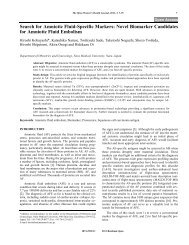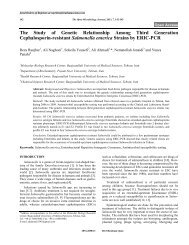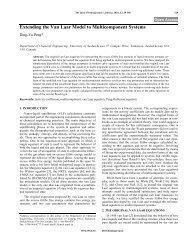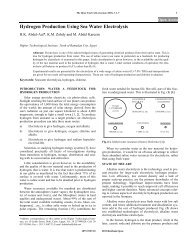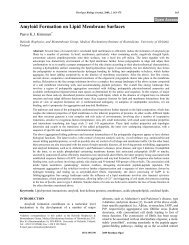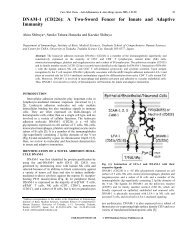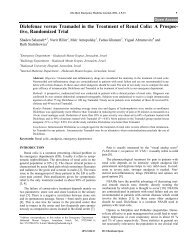Download - Bentham Science
Download - Bentham Science
Download - Bentham Science
You also want an ePaper? Increase the reach of your titles
YUMPU automatically turns print PDFs into web optimized ePapers that Google loves.
Menopause and the Risk of Cardiovascular Diseases Current Topics in Menopause 127<br />
diseases account for 43% of deaths in men and 54% in women in Europe [2].<br />
Specifically, coronary heart disease represents 21% of deaths in men and 22% in<br />
women, whereas stroke is a more frequent cause of death in women than in men<br />
(17% and 11%, respectively), as well as the other cardiovascular diseases (15% in<br />
women and 11% in men). Thus, stroke represents the third cause of death in men<br />
and the second in women.<br />
Despite unequivocal epidemiological observation the cardiovascular risk in<br />
females is underestimated because women are perceived as protected against<br />
cardiovascular disease [3]. However, the incidence of cardiac events is lower<br />
during the fertile age but increases after menopause and the misperception of the<br />
actual risk in this period may leave most women without appropriate preventive<br />
measures [4].<br />
Sex hormones exert significant effects on the cardiovascular system. Ovarian<br />
hormone deficiency associated with menopause may play an important role in the<br />
development of cardiovascular disease in women. As the loss of ovarian<br />
hormones at menopause has an adverse impact on many cardiovascular risk<br />
factors, several observational studies were conducted in the 1980s in order to<br />
verify a potential association between the administration of exogenous estrogens<br />
and risk reduction of cardiovascular diseases. However, the reduced risk of<br />
cardiovascular diseases associated with hormone replacement therapy (HRT),<br />
reported in the observational studies, has not been subsequently confirmed in the<br />
randomized clinical trials. Therefore, at the present time, HRT is not<br />
recommended for postmenopausal women for the prevention of cardiovascular<br />
diseases. However, the possibility to consider HRT in women who experience<br />
menopausal symptoms that significantly affect their quality of life in relation to<br />
age, time since menopause began, route of administration and dosages is taken<br />
into consideration in recent Statements or Guidelines of Scientific Societies [5].<br />
Although the majority of both men and women with ischemic heart disease have<br />
the typical symptoms of chest pain, more women than men show atypical clinical<br />
manifestations and the disease may go unrecognized for many years. Therefore, it<br />
is extremely important to carefully assess the risk of cardiovascular diseases in<br />
women in the peri- and postmenopausal period in order to develop appropriate


